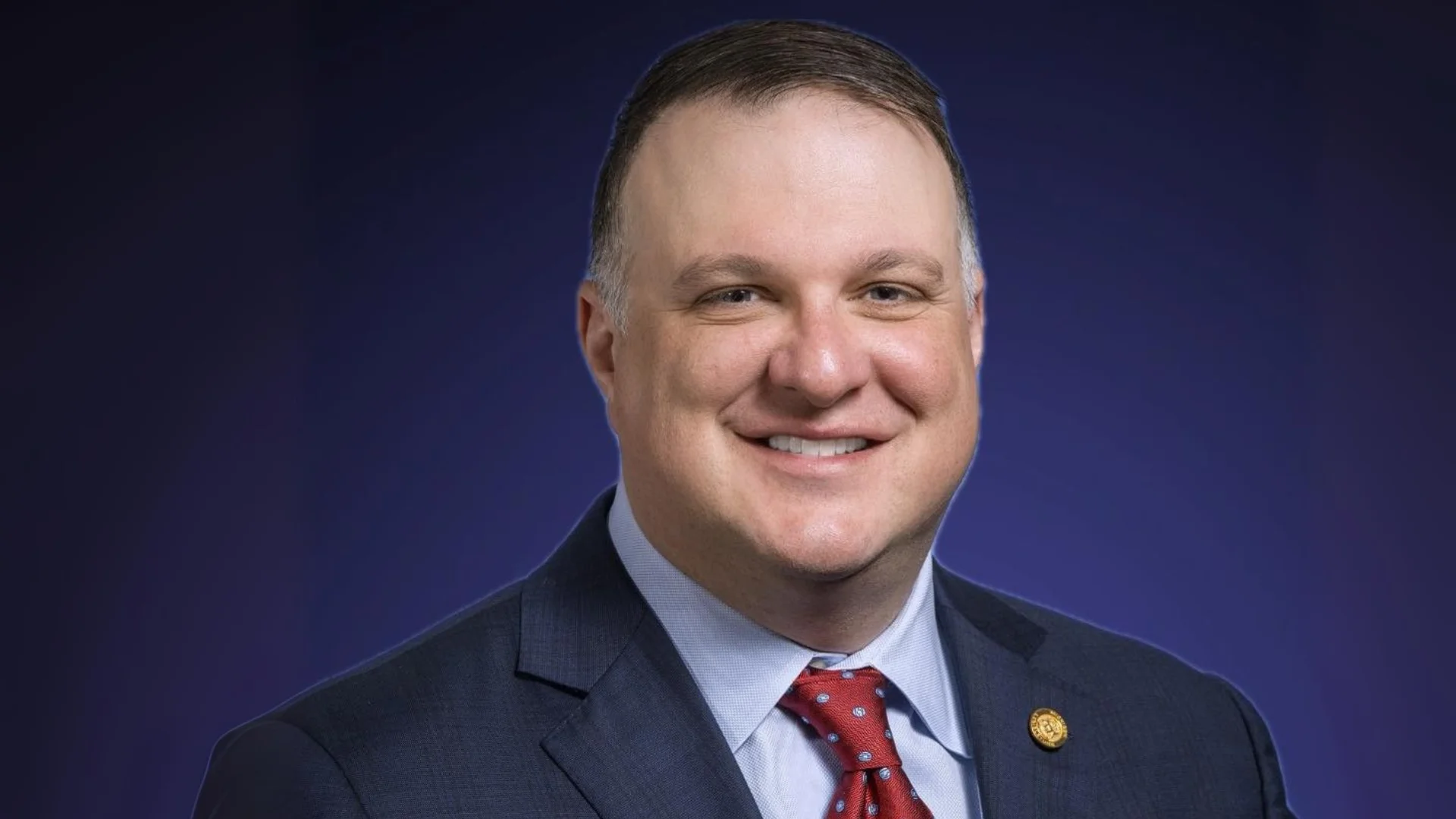Matt Hall House Speaker | Official Website
Matt Hall House Speaker | Official Website
The Michigan Legislature is on track to send the fewest bills to the Governor in a regular session since 1837, but House Speaker Hall indicated he is not concerned by this. Speaking Wednesday, Hall outlined his main goals for considering the 2025 session a success: passing a fiscal year 2026 budget along with a long-term road funding deal that does not raise taxes; enhancing President Donald Trump’s tax cuts by eliminating taxes on tips, Social Security, and overtime; establishing a Public Safety Trust Fund; securing Senate action on Republican education reforms such as making phonics the official reading standard and increasing flexibility in skilled trades programs; and reducing “waste, fraud and abuse” in social programs like welfare as part of a smaller budget than last year.
Hall said achieving these priorities with only 25 to 30 public acts—the smallest number in state history—would be acceptable. He also expressed appreciation for Governor Gretchen Whitmer’s proposals to have the Auditor General oversee legislative earmarks and set hard caps on their approval. However, Hall noted that most House Democrats are not participating in subcommittee hearings where earmark requests are discussed. “If you don’t participate in a public hearing, then we’re not going to consider your request in the House budget,” Hall told Democrats.
Addressing other legislative matters, Hall said nine bills left over from the previous session are considered “dead” unless there is a court ruling otherwise. With passage of HR 41 earlier this session, the House clarified that bills not transmitted to the Governor at session’s end do not move forward. “Otherwise, you could take it to the extreme. You could hold on to a bill for 25 years and then give it to a governor. We drew a line that once the prior legislature ends, that is that. It’s over. The bills are dead.”
Hall said House Republicans plan to rewrite Michigan’s energy bill by removing requirements for electricity providers to run entirely on clean energy by 2040 and achieve 60 percent renewables by 2035. He argued new policies should prioritize reliability and affordability amid growing demand from data centers. Part of this effort would include repealing laws allowing state authorities to override local governments’ decisions about solar facility locations.
He expects fewer renewable projects after ending tax credits for them through recent legislation—a move he says will slow down installations of solar panels and wind turbines whose components are made abroad.
Committee leadership was also discussed: Brian BeGole (R-Perry) has been leading many issues as Government Operations Committee Chair; future energy-related bills may go through committees chaired by Pauline Wendzel (R-Watervliet), David Martin (R-Davison), or Vice Chair Dave Prestin (R-Cedar River).
Regarding who will replace Rep. Alabas Farhat (D-Dearborn) as ranking member of House Appropriations Committee, Hall acknowledged Rep. Karen Whitsett (D-Detroit) was mentioned but noted her strong showing in Detroit City Council elections might mean she leaves soon. Other candidates were not named.
Farhat was removed from his post after disagreements over delivering votes for certain legislation. Farhat commented: “My job is not to deliver votes from the House Democratic Caucus on the Speaker’s bad bills. My job is to make sure I can bring the caucus something palatable that I believe aligns with our core values.” He added: “Sometimes, I’m shocked at how little he understands the process.”
On internal party matters, some members’ absence during key votes allowed Democrats to block legislation limiting student cell phone use in classrooms—a policy unlikely before next school year due to political dynamics.
Hall expressed no concern about whether Michigan will continue using Medicaid provider assessments if federal waivers lapse: “I’m comfortable with the way things are without the waiver,” he said. “If we don’t get the waiver, we can do all of our priorities in our budget. There’s so much waste, fraud and abuse in this budget.”
He supports Medicaid work requirements being added via recent legislation—arguing able-bodied adults should not receive free health care—and compared eligibility standards with those for food stamps.
Finally, Hall replaced an old photo at his office entrance with one depicting President Trump announcing new missions at Selfridge Air Base.
For more news updates relevant to small businesses across Michigan—including ongoing coverage from Lansing—visit https://www.sbam.org/news-resources/.






 Alerts Sign-up
Alerts Sign-up